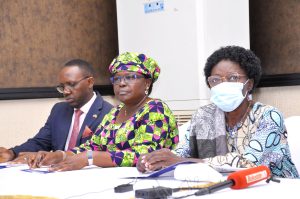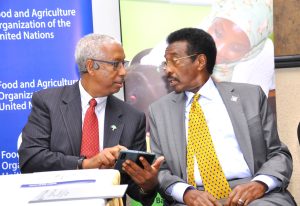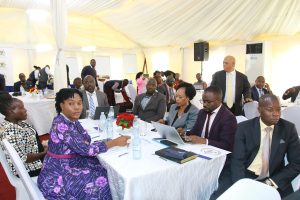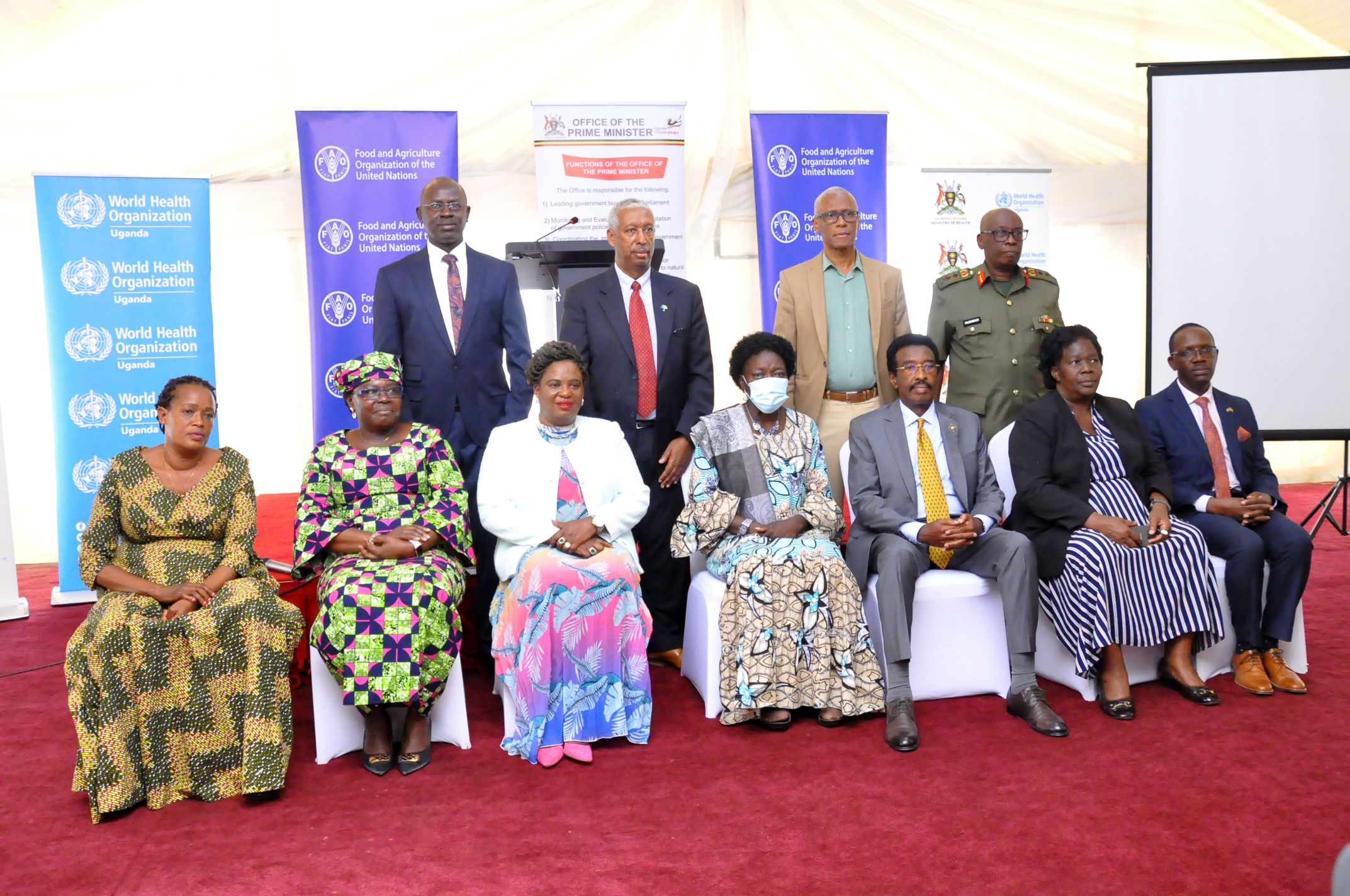By: Pascal Kwesiga
Munyonyo
The second Joint External Evaluation (JEE) which is aimed at assessing Uganda’s compliance with the International Health Regulations (IHR 2005) is underway.
Uganda is among the over 190 countries that are signatories of these regulations that require nations to build capacities to prevent, detect early and promptly respond to public health emergencies and threats of international concern.
The development of these capacities is a multi-sectoral effort, which is evaluated by an independent team of experts after five years.

(L-R) Dr Dan Kyabayinze, the director for public health in the ministry of heath, Grace Kwiyucwiny, the Minister of State for Northern Uganda, Rebecca Kadaga, the First Deputy Prime Minister and Minister for the East African Community Affairs addressed the press during the second JEE breakfast meeting at Sheraton Hotel in Kampala on 21 September 2023
The Office of the Prime Minister (OPM), which conducted the first JEE in 2017, launched the second assessment on 21st September 2023 together with various Ministries, Departments and Agencies (MDAs) and local and international partners at Sheraton Hotel in Kampala.
In a statement delivered by the First Deputy Prime Minister, Rebecca Kadaga, the Prime Minister, Robinah Nabbanja, said the first JEE identified several gaps and challenges and made recommendations for enhancing the country’s capacities to prevent, detect and respond to health emergencies.
“Our country controlled the recent Ebola outbreak in Mubende in a record time of 69 days and was ranked 10th best in the world in responding to COVID-19 due to the National IHR capacity already built by the Government,” the Prime Minister said.
Health security plan

Dr. Yonas Tegegn, (left) the WHO Country Representative in Uganda, interacting with Jim Muhwezi, the Minister for Security during the second JEE breakfast meeting at Sheraton Hotel in Kampala on 21 September 2023.
One of the products of the 2017 assessment is the National Action Plan for Health Security (NAPHS), which was put in place in 2019.
The second JEE will assess the implementation of this action plan and make recommendations.
The MDAs involved in the JEE exercise and implementation of NAPHS include Health, Agriculture, Animal Industry and Fisheries, Water and Environment, Trade Industry and Cooperatives, Office of the President, and Defense and Veteran Affairs.
Others are Internal Affairs, Finance Planning and Economic Development, Justice and Constitutional Affairs, Gender, Labour and Social Development, Uganda Wildlife Authority and Uganda Bureau of Statistics.
Investigation
The JEE is conducted in two phases – internal and external assessments. This exercise, which will involve experts investigating the capacities built by various MDAs over the years, will end in October. Nabbanja urged all MDAs participate in this national exercise.
The World Health Organisation country representative, Dr Yonas Tegegn, said Uganda is progressing in the right direction and that the second JEE “will help us identify gaps and look for solutions in a more coordinated manner”
Meanwhile, the Food and Agriculture Organisation country representative, Antonio Querido, thanked the Government of Uganda for “being open” and for undertaking this voluntary exercise.
“We also thank the Office of the Prime Minister for providing leadership,” he said.
Milestones

Representatives from various MDAs attended the launch of the second JEE breakfast meeting at Sheraton Hotel in Kampala on 21 September 2023
Some of the successes that have been registered since the first JEE include the passing of the amended Public Health Act by Parliament, the approval by Cabinet of the principles for amending the Animal Diseases Act, strengthening surveillance of zoonotic diseases and the launch of the biosafety Level 2 laboratory in Queen Elizabeth National Park.
Others are investigation of antimicrobial resistance in water and the environment, strengthening health services at border crossings, rolling out the 3rd edition of Integrated Disease Surveillance and Response and decentralising Public Health Emergency Operation Centres.
The Prime Minister said the recommendations from the second JEE will be used to further strengthen Uganda’s capacities to prevent, detect and respond to future public health emergencies and threats.
END





